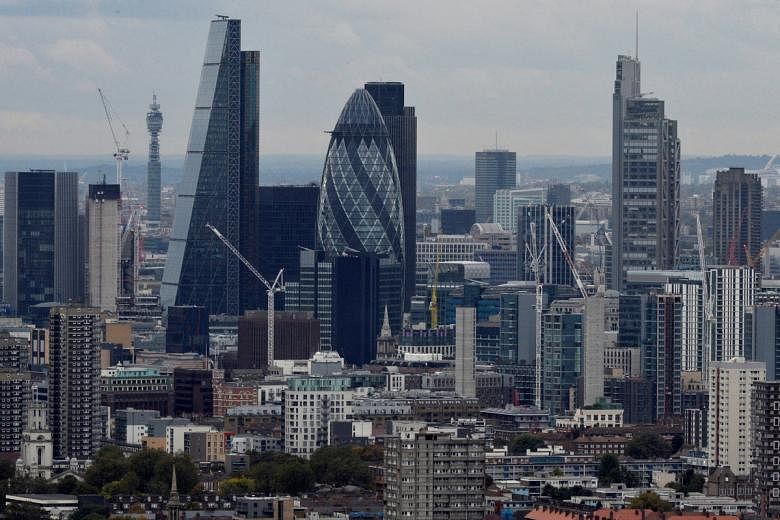LONDON (BLOOMBERG) - Britain recorded its first fiscal surplus since the start of the pandemic, setting Chancellor of the Exchequer Rishi Sunak on course for an almost £18 billion (S$33 billion) Budget windfall.
The government raised £2.9 billion more in tax than it spent in January, Office for National Statistics figures showed on Tuesday (Feb 22).
The figures reflect the recovery from the pandemic, which has boosted tax receipts from workers and businesses and allowed the government to end costly support programmes such as furlough. The economy is on track to return to its pre-pandemic size in the coming quarter.
Britain typically registers surpluses in January and July, the biggest tax months of the year, but the damage caused by coronanvirus meant the last time it did so was in January 2020 - before the pandemic struck.
Borrowing in the first 10 months of the current fiscal year was £138.5 billion, less than the £156.3 billion the Office for Budget Responsibility (OBR) forecast in October.
Revisions for the April to December period lowered the deficit by £5.4 billion. That gives Mr Sunak fiscal space to deliver further help for households facing a cost of living crisis that is set to worsen in April, when a £12 billion payroll tax increase is scheduled to coincide with a 54 per cent jump in energy bills.
Mr Sunak is resisting calls from some lawmakers in the ruling Conservative Party to cancel the planned increase in national insurance contributions, but assistance is likely when he delivers his Spring Statement on March 23.
A key reason why Mr Sunak is reluctant to relax his budget-cutting efforts is the impact that soaring prices are having on the public finances.
Around a quarter of government debt tied to retail price index (RPI) measure of inflation, which surged to a 31-year high of 7.8 per cent in January. Debt interest costs totalled £57.8 billion between April and January. That is £25.7 billion higher, or 80 per cent, than the same period a year earlier and well above OBR forecasts.
A significant further hit is likely in the coming fiscal year, which starts in April.
Tax revenue rose across the board in January compared with a year earlier, except for corporation tax receipts.
While overall spending growth was restrained, departmental costs rose sharply, partly reflecting expenses relating to the pandemic such as vaccines and the test and trace programme.
Those costs are set to fall with the ending of pandemic rules in England announced by Prime Minister Boris Johnson on Monday.

